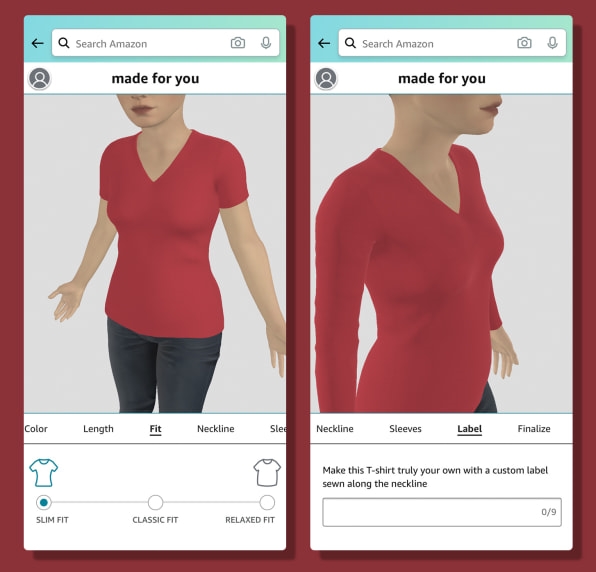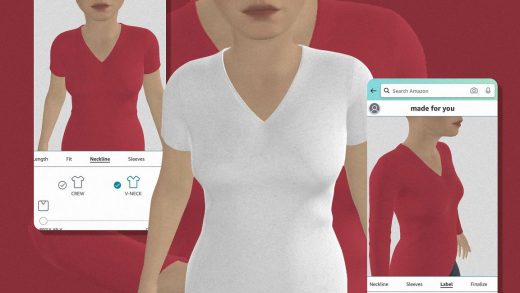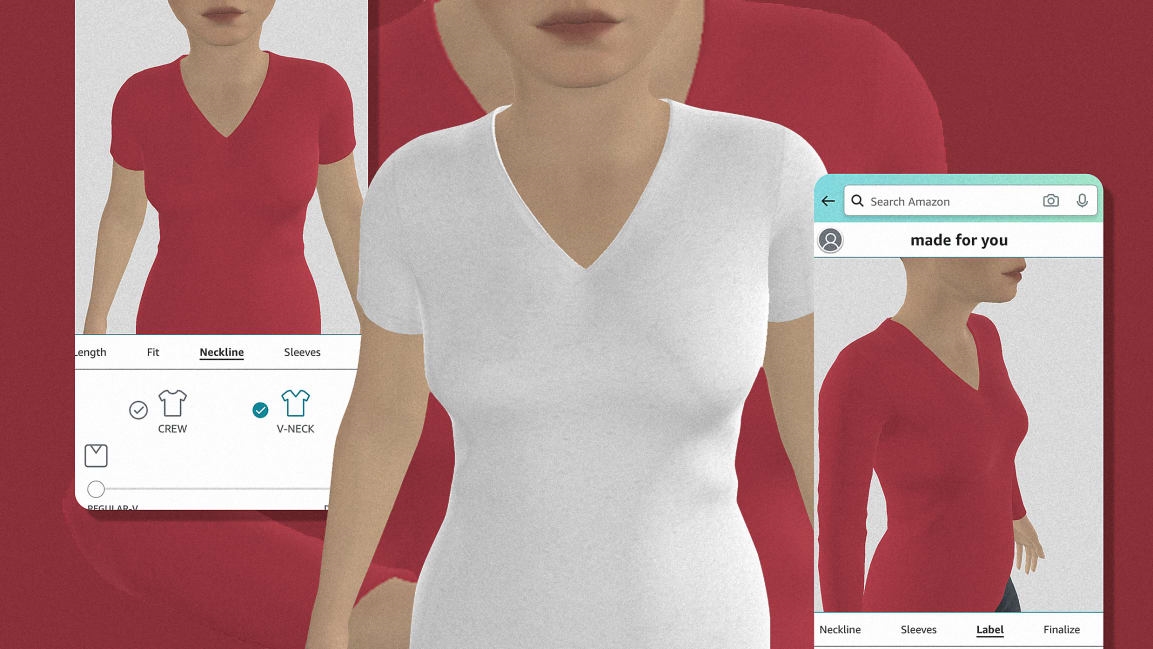Amazon wants to scan your body to make perfectly fitting shirts
For just $25, Amazon wants to make you a custom T-shirt. And a virtual body double.
This week, the company unveiled a brand called “Made for You” that creates made-to-measure clothes. The initial product, a T-shirt, can be personalized to your taste and measurements, and more products are coming. This is Amazon’s latest bid to make itself a fashion destination, and if the company chooses to double down on this made-to-measure technology, it could have significant impacts throughout the industry.

It took me five minutes to design a pink, long-sleeved cotton T-shirt. The process began with creating a virtual body double, which involves inputting details—such as my height, weight, and skin tone—then taking two photos on my phone using the 3D body scanner in the app. (Amazon has been incorporating body scanners into a number of its products lately, from its fitness band to its smart mirror.) The final 3D representation that appeared on the app looked uncannily like me. In the final step, I chose the color, sleeve length, and neckline of the tee. Then boom! I added it to my cart, and the custom shirt is set to arrive on Christmas Eve.
Amazon declined to make a spokesperson available to discuss its manufacturing process, but the “Made for You” page says the T-shirts are made in the U.S. from imported fabric. The company intends to offer other types of garments on the platform and invites customers to suggest the pieces they’d most like, from dresses to trousers to activewear.
There was a time when it was only possible to get made-to-measure clothes at a tailor. But over the past decade, fashion brands have used technology to manufacture customized clothes at more affordable prices. On top of providing customers with exactly what they’re looking for, made-to-measure manufacturing could help cut down on the enormous waste generated by the fashion industry. Fashion companies are notorious for overproduction: They speculate about what styles will be popular months from now and estimate how much of each size to make. They assume that they’ll get these figures wrong and plan for a certain percentage of items to be heavily discounted or thrown out.
While the technology for automating on-demand manufacturing has been around for decades, it’s taken a long time for the fashion industry to come around. 3D body scanners on smartphones—like the one on Amazon’s app—enabled companies to send a customer’s measurements directly to factories, speeding up the manufacturing process.
But on-demand models have still seen mixed results. In 2014, British startup Unmade created a customization platform, partnering with brands like New Balance and Rapha to create small capsule collections. In 2017, Japanese startup Zozo created a full body suit covered in white dots that a customer could wear to generate precise 3D body measurements, but few people actually bought clothes. Last year, Laws of Motion made dresses on demand, offering 99 micro-sizes for a better fit.
So far, none of these companies have been able to scale because it’s expensive to invest in on-demand tech and build a supply chain around it. Will Amazon be able to do it? It’s unclear. Much will depend on how much the company chooses to invest in marketing the platform and building out this technology. But if Amazon is able to get its millions of customers comfortable with made-to-measure, it could see many other companies follow suit.
(19)



